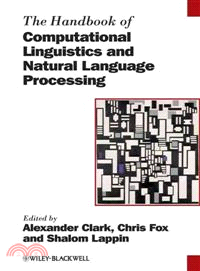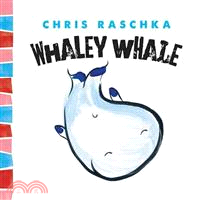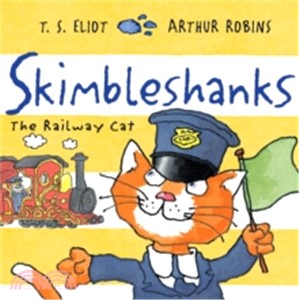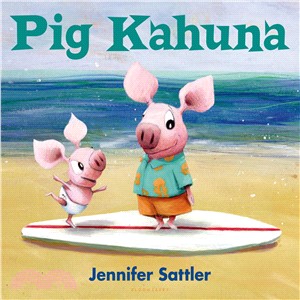Handbook Of Computational Linguistics And Natural Language Processing
商品資訊
ISBN13:9781405155816
出版社:John Wiley & Sons Inc
作者:Fox
出版日:2010/07/16
裝訂/頁數:精裝/802頁
定價
:NT$ 13448 元優惠價
:90 折 12103 元
若需訂購本書,請電洽客服 02-25006600[分機130、131]。
商品簡介
作者簡介
目次
商品簡介
This comprehensive reference work provides an overview of the concepts, methodologies, and applications in computational linguistics and natural language processing (NLP).
Features contributions by the top researchers in the field, reflecting the work that is driving the discipline forward
Includes an introduction to the major theoretical issues in these fields, as well as the central engineering applications that the work has produced
Presents the major developments in an accessible way, explaining the close connection between scientific understanding of the computational properties of natural language and the creation of effective language technologies
Serves as an invaluable state-of-the-art reference source for computational linguists and software engineers developing NLP applications in industrial research and development labs of software companies
Features contributions by the top researchers in the field, reflecting the work that is driving the discipline forward
Includes an introduction to the major theoretical issues in these fields, as well as the central engineering applications that the work has produced
Presents the major developments in an accessible way, explaining the close connection between scientific understanding of the computational properties of natural language and the creation of effective language technologies
Serves as an invaluable state-of-the-art reference source for computational linguists and software engineers developing NLP applications in industrial research and development labs of software companies
作者簡介
Alexander Clark is a Lecturer in the Department of Computer Science at Royal Holloway, University of London. He is the co-author, with Shalom Lappin, of Linguistic Nativism and the Poverty of the Stimulus (Wiley-Blackwell, 2010).
Chris Fox is a Reader in the School of Computer Science and Electronic Engineering at the University of Essex. He has also taught at Goldsmiths College, University of London, and King’s College London. He is co-author, with Shalom Lappin, of Foundations of Intensional Semantics (Wiley-Blackwell, 2005).
Shalom Lappin is Professor of Computational Linguistics at King's College London. He is editor of the Handbook of Contemporary Semantic Theory (1996); co-author, with Chris Fox, of Foundations of Intensional Semantics (2005); and, with Alexander Clark, co-author of Linguistic Nativism and the Poverty of the Stimulus (2010), all published by Wiley-Blackwell.
Chris Fox is a Reader in the School of Computer Science and Electronic Engineering at the University of Essex. He has also taught at Goldsmiths College, University of London, and King’s College London. He is co-author, with Shalom Lappin, of Foundations of Intensional Semantics (Wiley-Blackwell, 2005).
Shalom Lappin is Professor of Computational Linguistics at King's College London. He is editor of the Handbook of Contemporary Semantic Theory (1996); co-author, with Chris Fox, of Foundations of Intensional Semantics (2005); and, with Alexander Clark, co-author of Linguistic Nativism and the Poverty of the Stimulus (2010), all published by Wiley-Blackwell.
目次
List of Figures.
List of Contributors.
Preface.
Introduction.
PART I: Formal Language Theory.
1. Formal Language Theory (Shuly Wintner, University of Haifa Israel).
2. Computational Complexity in Natural Language (Ian Pratt-Hartmann, University of Manchester).
3. Statistical Language Modeling (Ciprian Chelba).
4. Theory of Parsing (Mark-Jan Nederhof, University of St. Andrews) and Giorgio Satta, University of Padua).
PART II: Current Methods.
5. Maximum Entropy Models (Robert Malouf, San Diego State University).
6. Memory-Based Learning (Walter Daelemans, University of Antwerp and Antal van den Bosch, Tilburg University).
7. Decision Trees (Helmut Schmid, University of Stuttgart).
8. Unsupervised Learning and Grammar Induction (Alex Clark,University of London and Shalom Lappin, King’s College London).
9. Artificial Neural Networks (James B. Henderson, University of Geneva).
10. Linguistic Annotation (Martha Palmer, University of Colorado and Nianwen Xue, Brandeis University).
11. Evaluation of NLP Systems (Philip Resnik , University of Maryland and Jimmy Lin, University of Maryland).
PART III: Domains of Application.
12. Speech Recognition (Steve Renals, University of Edinburgh and Thomas Hain, University of Sheffield).
13. Statistical Parsing (Stephen Clark , Univeristy of Cambridge).
14. Segmentation and Morphology (John A. Goldsmith, University of Chicago).
15. Computational Semantics (Chris Fox, University of Essex).
16. Computational Models of Dialogue (Jonathan Ginzburg, King’s College, London and Raquel Fernandez, University of Amsterdam).
17. Computational Psycholinguistics (Matthew W. Crocker, Saarland University).
PART IV: Applications.
18. Information Extraction (Ralph Grishman, New York University).
19. Machine Translation (Andy Way, Dublin City University).
20. Natural Language Generation (Ehud Reiter, Univeristy of Aberdeen).
21. Discourse Processing (Ruslan Mitkov, Univeristy of Wolverhampton).
22. Question Answering (Bonnie Webber, University of Edinburgh and Nick Webb, University of Albany).
References.
Author Index.
Subject Index.
List of Contributors.
Preface.
Introduction.
PART I: Formal Language Theory.
1. Formal Language Theory (Shuly Wintner, University of Haifa Israel).
2. Computational Complexity in Natural Language (Ian Pratt-Hartmann, University of Manchester).
3. Statistical Language Modeling (Ciprian Chelba).
4. Theory of Parsing (Mark-Jan Nederhof, University of St. Andrews) and Giorgio Satta, University of Padua).
PART II: Current Methods.
5. Maximum Entropy Models (Robert Malouf, San Diego State University).
6. Memory-Based Learning (Walter Daelemans, University of Antwerp and Antal van den Bosch, Tilburg University).
7. Decision Trees (Helmut Schmid, University of Stuttgart).
8. Unsupervised Learning and Grammar Induction (Alex Clark,University of London and Shalom Lappin, King’s College London).
9. Artificial Neural Networks (James B. Henderson, University of Geneva).
10. Linguistic Annotation (Martha Palmer, University of Colorado and Nianwen Xue, Brandeis University).
11. Evaluation of NLP Systems (Philip Resnik , University of Maryland and Jimmy Lin, University of Maryland).
PART III: Domains of Application.
12. Speech Recognition (Steve Renals, University of Edinburgh and Thomas Hain, University of Sheffield).
13. Statistical Parsing (Stephen Clark , Univeristy of Cambridge).
14. Segmentation and Morphology (John A. Goldsmith, University of Chicago).
15. Computational Semantics (Chris Fox, University of Essex).
16. Computational Models of Dialogue (Jonathan Ginzburg, King’s College, London and Raquel Fernandez, University of Amsterdam).
17. Computational Psycholinguistics (Matthew W. Crocker, Saarland University).
PART IV: Applications.
18. Information Extraction (Ralph Grishman, New York University).
19. Machine Translation (Andy Way, Dublin City University).
20. Natural Language Generation (Ehud Reiter, Univeristy of Aberdeen).
21. Discourse Processing (Ruslan Mitkov, Univeristy of Wolverhampton).
22. Question Answering (Bonnie Webber, University of Edinburgh and Nick Webb, University of Albany).
References.
Author Index.
Subject Index.
主題書展
更多
主題書展
更多書展今日66折
您曾經瀏覽過的商品
購物須知
外文書商品之書封,為出版社提供之樣本。實際出貨商品,以出版社所提供之現有版本為主。部份書籍,因出版社供應狀況特殊,匯率將依實際狀況做調整。
無庫存之商品,在您完成訂單程序之後,將以空運的方式為你下單調貨。為了縮短等待的時間,建議您將外文書與其他商品分開下單,以獲得最快的取貨速度,平均調貨時間為1~2個月。
為了保護您的權益,「三民網路書店」提供會員七日商品鑑賞期(收到商品為起始日)。
若要辦理退貨,請在商品鑑賞期內寄回,且商品必須是全新狀態與完整包裝(商品、附件、發票、隨貨贈品等)否則恕不接受退貨。






















